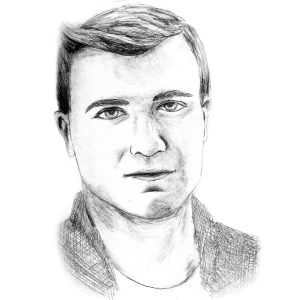 Last weekend, I had the pleasure of being part of the Georgetown delegation to the inaugural “IgnatianQ” Conference at Fordham University. This conference was a chance for LGBTQ students to network and affirm our experiences.
Last weekend, I had the pleasure of being part of the Georgetown delegation to the inaugural “IgnatianQ” Conference at Fordham University. This conference was a chance for LGBTQ students to network and affirm our experiences.
During the keynote, Fordham theology professor Patrick Hornbeck reflected on the need for us to both love and understand those around us. One without the other, he said, can do more harm than good. This observation resonated with both my personal life and my advocacy.
I’ve thought about the night I came out to my parents. My mother had confronted me after I had spent months sharing less and less of myself with my family. We talked about my work at a lab studying HIV, my closeness to my debate coaches (a community that, for reference, counts me as a comparatively straight member) and my recent fashion choices.
My mom just wanted to know more about me, but in my state of fear, our conversation escalated. In a defensive flourish, I blurted out why I had gotten so heated: It was because I am gay. Even through all our tears and sharp words, we told each other that we loved each other no matter what, and we meant it.
That fight was neither our last nor most heated. Fights would start in a predictable manner; one of us would say something that meant something completely different to the other and — because we are Sicilian and Irish — the conversation would quickly escalate.
My love for my parents pushed me to hide things that I thought would be difficult or uncomfortable for them. In turn, when they told me to hide my flamboyance, it came from a place of love and a desire to keep me safe. What we lacked was an understanding. My parents needed to be let in, and then they’d know that unfettered expression (and the occasional drag costume) is what I needed to be safe in my own skin.
While I am not an easy son to understand or to argue with, my parents have come to understand so much, and I thank God for them each morning.
The impacts of a love-and-understanding imbalance extend well beyond my own coming-out narrative; it affects how I approach my work and the way I support others. As I strive to be an ally to different communities, whether they are students of color, disabled students or other students who fall under the LGBTQ acronym, I remember that simply loving a culture or a group of people is not nearly enough to support them. Love of communities of color or women would blind me to my own privilege as a white man when I was a part of their space. I would say things I shouldn’t or invalidate experiences, all while dismissing these sins by saying, “but I love [insert oppressed identity here].”
At Georgetown, this imbalance can manifest itself in similarly unfortunate ways. There are many students who have a love of communities that they do not truly understand or engage. Some responses to the “Utraque Unum” campaign rested on gut reactions to unconventional gender expressions, along with other misunderstandings about the artist and intent. Rather than engage and learn, many chose to attack, some writing from a place of “support” for the LGBTQ community.
I’ve found that love and understanding can be separate when people cling too closely to “natural law” or traditional Catholic values at the expense of other views. We love our pro-choice students but don’t want to provide them with the resources to help us to truly understand them. Some people claim to love our LGBTQ students, but then they act in ways that seem completely removed from our lived experiences.
I can think of students who claim that Georgetown’s LGBTQ community is already accepted “enough” and follow this by saying, “They knew they were coming to a Catholic school.”
These students would benefit from hearing stories about how, even this past weekend, students who went to The Tombs after GenderFunk (still dressed up) were verbally harassed by their (perhaps inebriated) peers. I think of other schools, like conference host Fordham, who think that they can love their trans* students, but who require them to undergo six months of on-campus psychological evaluation before they can live with the gender with which they identify.
Love that isn’t substantiated with a deep and dynamic understanding hurts. Loving something is an active identity. To quote Orson Scott Card’s “Ender’s Game” out of context, “I think it’s impossible to really understand somebody, what they want, what they believe, and not love them the way they love themselves.”
Thomas Lloyd is a junior in the School of Foreign Service. This is the final appearance of QUEERA PERSONALIS this semester.



















